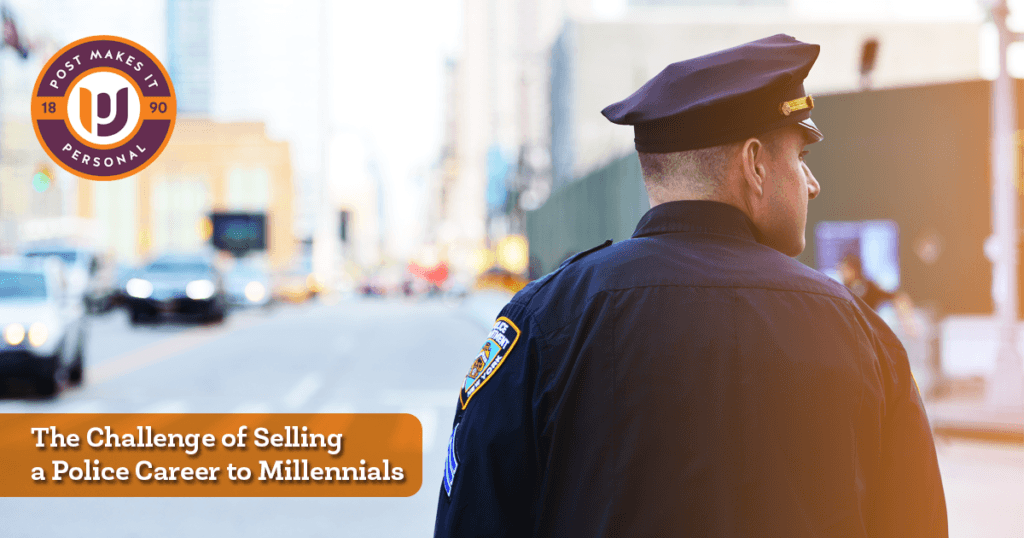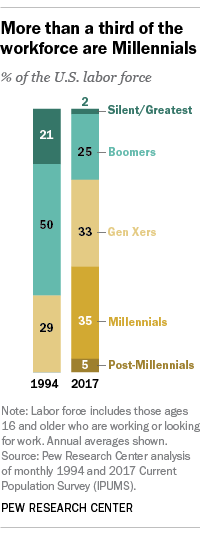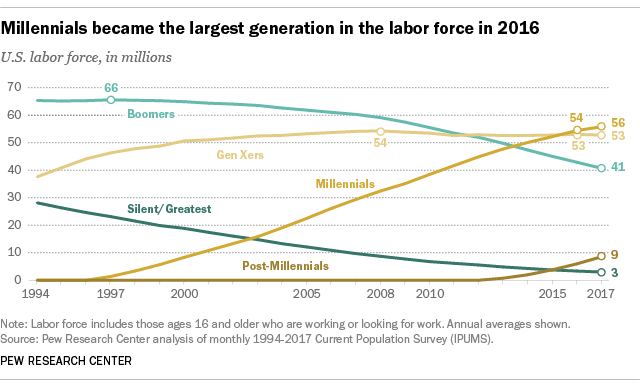
The most difficult parts of a police career have changed little over the last few decades; dangerous encounters, service provided on a 24/7 schedule, and para-military organizational structure. These characteristics make up the basic building blocks of almost every law enforcement agency in this country and are unlikely to change. As law enforcement agencies struggle to recruit new officers, they cannot ignore the more challenging aspects of police work and must find ways to present them as public service opportunities.
In the spring issue of Public Administration Today, Cynthia Anger’s article entitled, “Millennials: The Next Generation of Public Administrators” considered the view that millennials are seeking careers where their expectations for satisfying work are in line with public service. Anger writes that millennials are satisfied with government employment and are seeking degrees at higher rates in public administration and social service majors. Millennials already make up the majority of the working population. Their work-life expectations reinforce the idea that law enforcement agencies will have to sell their unique brand of public service to this young workforce.
The vast majority of police work involves having a significant impact on citizen’s lives by applying the law professionally and guiding people to services that will enhance their quality of life. This work is part of a law enforcement officer’s regular, everyday environment. While there is no avoiding that the job has inherent risks, the data show that fatalities are few. With an estimated 422,869 full-time police officers in the country, in 2017 there were 987 fatal police encounters. Ironically, the dangerous working conditions offer the greatest selling point. There is no better definition of making a difference in your community than protecting human life during critical incidents.

Millennials prefer unstructured work environments. Traditional 9 to 5 jobs are too restrictive for their lifestyle choices. Law enforcement’s 24/7 work shift schedule provides the flexibility that millennials crave. Equally important, policing happens at the individual level, where officers exercise independent judgment to address citizen and community concerns. This dynamic should appeal to millennials as it places a premium on problem-solving skills that invite new approaches to address issues.
Millennials want their work to be recognized and valued. Given their desire for flexibility and unstructured work environments, it is not surprising that fewer millennials serve in the military than in preceding generations. A paramilitary structure may be a better fit as advancement more closely parallels that in the private sector. Unlike the military where promotions are available to anyone who meets the
criteria, in paramilitary organizations they are based on demonstrated ability, education levels and years of experience. One area of policing where millennials can excel is in the use of technology. Millennials are nothing if not techno-savvy, and their skills bring immediate value to the organization.
Law enforcement recruiting needs to adapt to the millennial mindset, not only to attract more officers but also because millennials bring new perspectives and expectations to policing in the 21st century. Research shows that recruits will be better educated and racially diverse. They come to the workforce later in life, bringing more life experiences. These are excellent characteristics of police officers and agencies will need to connect the dots for millennials to draw them to the policing profession.
John Polak, MPA, is a lieutenant in the Newport News, VA police department, and a 2018 graduate of the Post University Master of Public Administration program.
